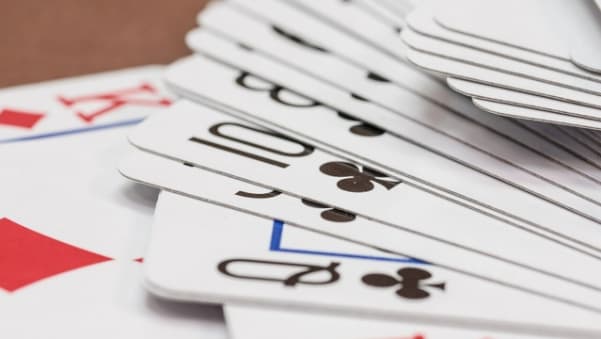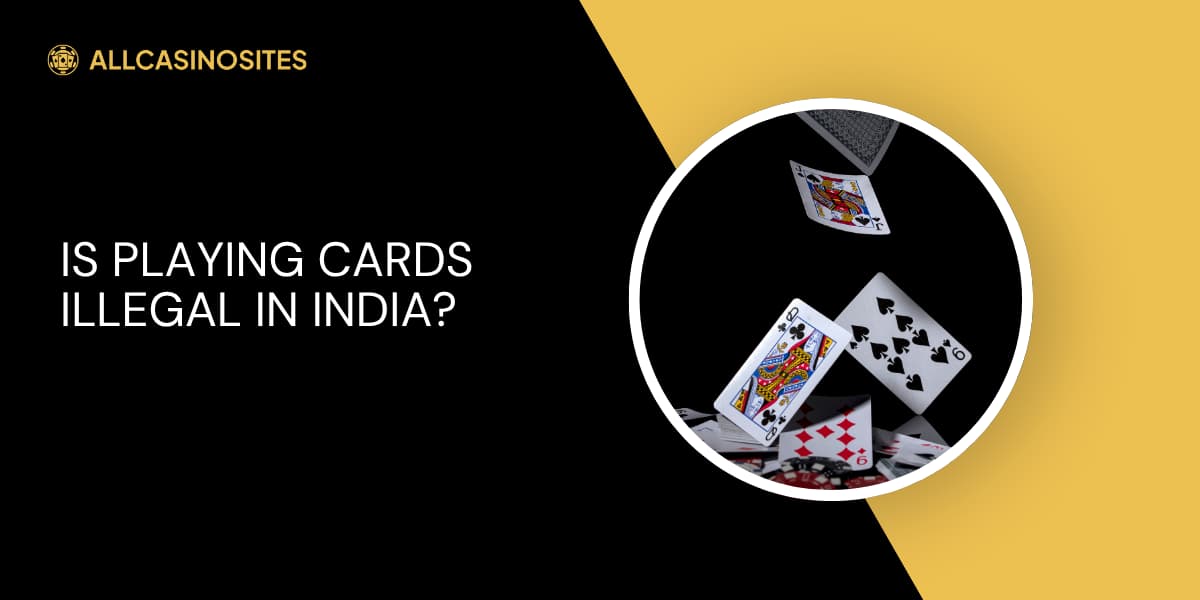Playing cards are not illegal in India. Their legality depends on factors like whether money is involved, the game type, and where it’s played.
Traditional games like Teen Patti and modern ones like poker or rummy are legal when played for fun, but can raise legal issues if stakes are involved or played in public.
State laws and the game’s purpose, whether it is recreation or gambling, are key.
This article breaks down these distinctions to help you understand when card games are legal in India and when they may cross into illegal territory.
Is Playing Cards Illegal In India: Quick Answer
Simply put, playing cards for entertainment without monetary stakes is completely legal throughout India.
| Type of Card Activity | Legal Status | Governing Law |
|---|---|---|
| Casual play at home (no money involved) | Legal | No law prohibits it |
| Playing rummy or poker for fun | Legal | Recognized as games of skill |
| Gambling with money in public places | Illegal | Public Gambling Act, 1867 |
| Private games with stakes (at home) | Varies by state | Often allowed unless commercial |
| Online rummy/poker with real money | Illegal | Promotion and Regulation of Online Gaming Bill, 2025 |
| Playing in licensed casinos | Legal | Permitted under state casino laws |
What Indian Law Says About Playing Cards In India?
The primary legislation governing card games in India is the Public Gambling Act of 1867, which prohibits public gambling but doesn’t ban private recreational games.

Indian courts have consistently distinguished between games of skill and games of chance.
The Supreme Court says skill-based games like rummy aren’t gambling, even when played for money.
Recent judgments have clarified that playing cards for entertainment and recreation without gambling does not constitute “moral turpitude“, a legal term referring to conduct contrary to community standards of justice and honesty.
The Supreme Court’s landmark rulings have established that card games involving skill are protected activities. However, games purely based on chance fall under gambling laws.
Additionally, each state has autonomy to create specific gambling regulations, leading to variations across different regions of India.
Players should also check how casino legality in India varies by state.
Is It Illegal To Play Cards At Home In India?
Playing cards at home is completely legal when done for entertainment without monetary stakes or with minimal friendly wagers among family and friends.

Private card games with small stakes are generally not penalized by law enforcement unless they become commercial operations or involve significant amounts of money.
The key distinction is that these activities must remain private, non-commercial, and not constitute organized gambling.
According to legal precedents, such recreational activities at home do not involve moral turpitude and fall outside the scope of gambling laws.
However, if card games at home become regular commercial enterprises where the house takes a cut or significant money changes hands regularly, they may attract legal scrutiny under gambling provisions.
Are Online Card Games For Money Legal In India?
Online card games for money are now regulated under the Promotion and Regulation of Online Gaming Bill, 2025, as part of evolving gaming laws in India.

Popular platforms offering online rummy and poker, once seen as skill-based games, are no longer permitted when played for monetary stakes.
The Bill prohibits online money games of this nature nationwide, making real-money card gaming illegal regardless of state boundaries or earlier exemptions.
Players must avoid participating in such online card games for money, as doing so can lead to legal complications under the new law.
What Are The Penalties For Playing Cards Against The Law In India?
In India, the punishment for gambling in India is imposed only if card games involve monetary stakes in unauthorized venues.
Under the Public Gambling Act of 1867, operating a gambling house where card games are played for stakes can lead to up to 3 months in jail or a fine of up to ₹200.
Simply being found gambling in such a place may result in a fine of up to ₹ 100 or a term of up to 1 month in jail. Playing cards for money in public spaces is also punishable.
However, playing cards recreationally in private settings without monetary stakes is not considered illegal.
How To Play Cards Safely In Public For Money In India
Legal options for playing cards with money in public settings are limited to licensed establishments and specific jurisdictions where gambling is regulated.
To play Cards safely in Public for money in India, you should:
- Know the Law:
Gambling in public spaces is generally illegal under the Public Gambling Act, 1867—even for skill-based games like rummy or poker.
- Choose Skill-Based Games:
Stick to games recognized as skill-based (like rummy), but remember this doesn’t legalize playing them for money in public.
- Use Licensed Venues
Play only in government-authorized casinos or clubs in states where such gambling is legal (e.g., Goa, Sikkim).
- Avoid Open Public Spaces:
Never play cards for stakes in streets, parks, or other public places to avoid legal penalties.
- Keep It Private and Friendly
Playing for small stakes at home among friends without any organizer’s profit is generally safer.
- Check Local Laws
State laws vary; some states entirely ban gambling, including skill games for money, so verify your local rules.
Related Read:
Conclusion: Under Indian Gambling Laws, Card Games With Stakes Are Illegal
Playing cards for fun, recreation, or skill is legal in India when done privately at home or in licensed venues.
These activities are widely accepted and don’t attract legal issues. Cultural significance contributes to their acceptance as leisure activities.
Problems arise when money is involved, especially in public spaces or through unlicensed online platforms.
Such gambling can result in fines, arrests, or even imprisonment, depending on the state’s specific laws and regulations.
To stay within legal limits, it’s essential to know your state’s gambling laws. Always differentiate between casual card play and betting.
FAQs
Small private games with friends are usually fine. Significant events with entry fees may be treated as illegal gambling.
Clubs can host member-only games. Charging rake or entry without a license is illegal.
If money is involved and it looks commercial, you may face legal action. Casual home games are rarely targeted.
Playing Teen Patti during Diwali is a culturally common practice. Still, local laws apply, and stakes should be low.

